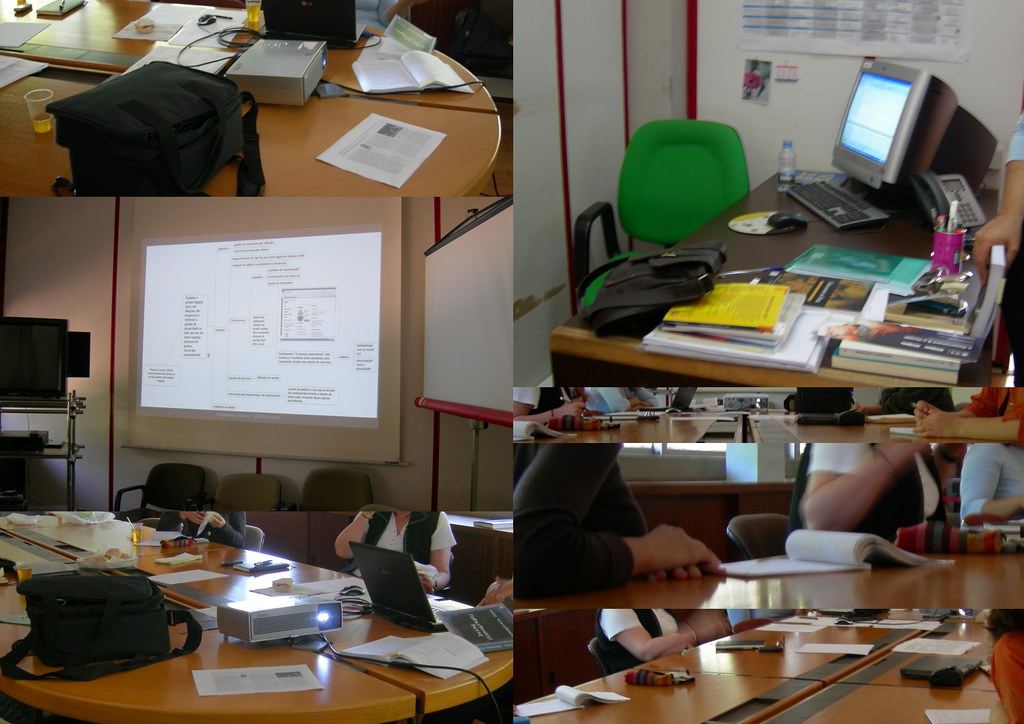The social life of information: displays of information artefacts in a small event. From personal workspace to event workspace and back. «Memory of the event» created and shared between participants: web object with embedded information used in the event, meta data about used information, summary of talk, and visual memory. Ciclo de Seminários sobre Estudos de Informação, June 14, 2009, Instituto Nacional de Engenharia, Tecnologia e Inovação, Lumiar, Portugal. Image by Monica Pinheiro, license CC BY-NC-SA (CC)

"More than conversation at the interface, it is creative assemblages like these that explore and elaborate the particular dynamic capacities that digital media afford and the ways that through them humans and machines can perform interesting new effects (...) in uniquely particular ways." Lucy Suchman (2009). Human-machine reconfigurations: plans and situated actions.
Oct 30, 2012
Oct 3, 2012
search for meaning
"If you don't recognize a young man's will to meaning, a men's search for meaning, you'll make him worse, you'll make him doll, you'll make him frustrated." (video)
"Freedom, however, is not the last word. Freedom is only part of the story and half of the truth. Freedom is but the negative aspect of the whole phenomenon whose positive aspect is responsibleness. In fact, freedom is in danger of degenerating into mere arbitrariness unless it is lived in terms of responsibleness. That is why I recommend that the Statue of Liberty on the East Coast be supplemented by a Statue of Responsibility on the West Coast." Viktor Emil Frankl
"Viktor Emil Frankl, M.D., PhD (26 March 1905, Leopoldstadt, Vienna – 2 September 1997, Vienna) was an Austrian neurologist and psychiatrist as well as a Holocaust survivor. Frankl was the founder of logotherapy, which is a form of existential Analysis, the "Third Viennese School of Psychotherapy". His best-selling book, Man's Search for Meaning (published under a different title in 1959: From Death-Camp to Existentialism, and originally published in 1946 as Trotzdem Ja Zum Leben Sagen: Ein Psychologe erlebt das Konzentrationslager), chronicles his experiences as a concentration camp inmate which led him to discover the importance of finding meaning in all forms of existence, even the most sordid ones, and thus a reason to continue living. Frankl became one of the key figures in existential therapy and a prominent source of inspiration for humanistic psychologists." (https://en.wikipedia.org/wiki/Viktor_Frankl)
by
Monica Pinheiro
0
comments
 Labels:
books,
boundaries,
freedom,
life,
meaning,
neurology,
psychology,
research,
responsability
Labels:
books,
boundaries,
freedom,
life,
meaning,
neurology,
psychology,
research,
responsability
Subscribe to:
Comments (Atom)
